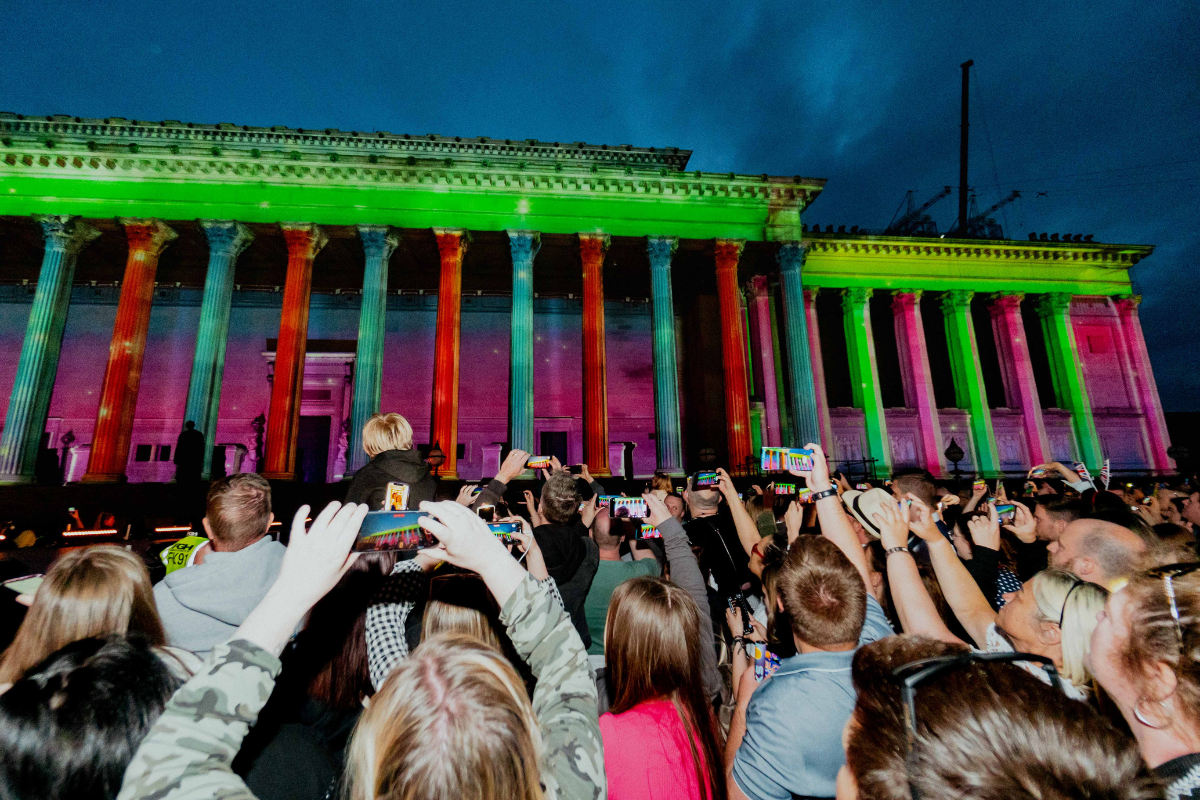Community and wellbeing evaluation of a unique international cultural event: Liverpool’s hosting of Eurovision 2023 for Ukraine
Downloads

About the author
Professor Rhiannon Corcoran is an applied social scientist and has been a Professor of Psychology and Public Mental Health at the University of Liverpool’s Institute of Psychology Health and Society since 2012, where she plays a lead role supporting mental health and wellbeing research and practice. She has previously held academic appointments at the University of Nottingham, the University of Manchester and UCL. Her research focuses on psychological, social and environmental mechanisms and determinants of mental distress and wellbeing, in particular social cognition and on how our living environment affects our ability to feel good and function well. In her capacity as a co-director of Prosocial Place, a social enterprise that specialises in putting wellbeing and mental health at the heart of place-making and regeneration, she has worked on several national programmes such as the NHS Healthy New Towns Initiative and with DLUHC, DCMS and Design Council.
About the What Works Centre for Wellbeing
We are an independent collaborating centre and the aim of our work is to improve wellbeing and reduce misery in the UK. We believe that this is the ultimate goal of effective policy and community action. By accelerating research and democratising access to wellbeing evidence, we develop and share robust evidence for governments, businesses, communities and people to improve wellbeing across the UK.
About the paper
In May 2023, building on its rich cultural history and status as a UNESCO City Of Music, Liverpool hosted the 67th edition of the Eurovision Song Contest on behalf of 2022 winners Ukraine.
The annual competition, televised internationally and organised by the European Broadcasting Union, is a cultural mega event involving over 50 countries.
Anecdotally referred to as ‘the best song contest so far’, Eurovision 2023 involved communities across the city region geography, ages, genders and ethnic backgrounds.
To understand the economic, cultural and wellbeing impacts of winning and delivering the fortnight, Liverpool City Council commissioned five in-depth, independent evaluations.
This discussion paper is based on the final report of the community and wellbeing strand of Eurovision 2023, which aimed to enhance and nuance our understanding of what mega-events do to support communities of place and the wellbeing of individuals living there. The co-produced evaluation was funded by Spirit of 2012 and the Department for Culture Media and Sport.
Here, the research team explores the community and wellbeing evaluation’s rationale, design and delivery, as well as impact findings and methodological learnings. The author highlights insights into mechanisms of subjective and community wellbeing improvement, illustrates affinities and disparities between quantitative and qualitative findings, and discusses issues related to ensuring and sustaining legacy.
Details and citation
Drafted by Rhiannon Corcoran, Prof. of Psychology and Public Mental Health, University of Liverpool for and on behalf of the Eurovision 2023 Community and Wellbeing evaluation team: Prof. Iain Buchan, Associate Pro Vice Chancellor for Innovation, University of Liverpool; Dr. Helen Page, Postdoctoral Research Fellow, University of Liverpool; Dr. Rachel Warsaw, Postdoctoral Research Fellow, University of Liverpool; Ms. Kateryna Zhuk, Ph.D student Sumy State University, Ukraine and Population Health Intern, University of Liverpool; Prof. Matt Ashton, Director of Public Health, Liverpool City Council.
Suggested citation:
Corcoran, R. (2024) Community and wellbeing evaluation of a unique international cultural event: Liverpool’s hosting of Eurovision 2023 for Ukraine, What Works Centre for Wellbeing
Downloads
![]()
[gravityform id=1 title=true description=true ajax=true tabindex=49]
